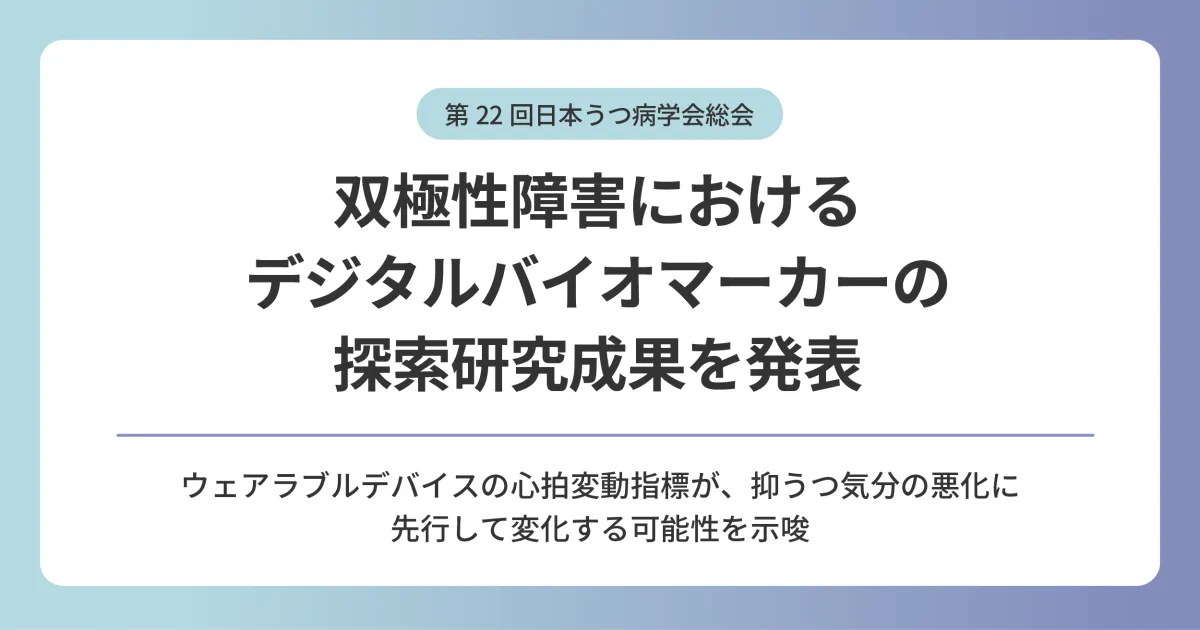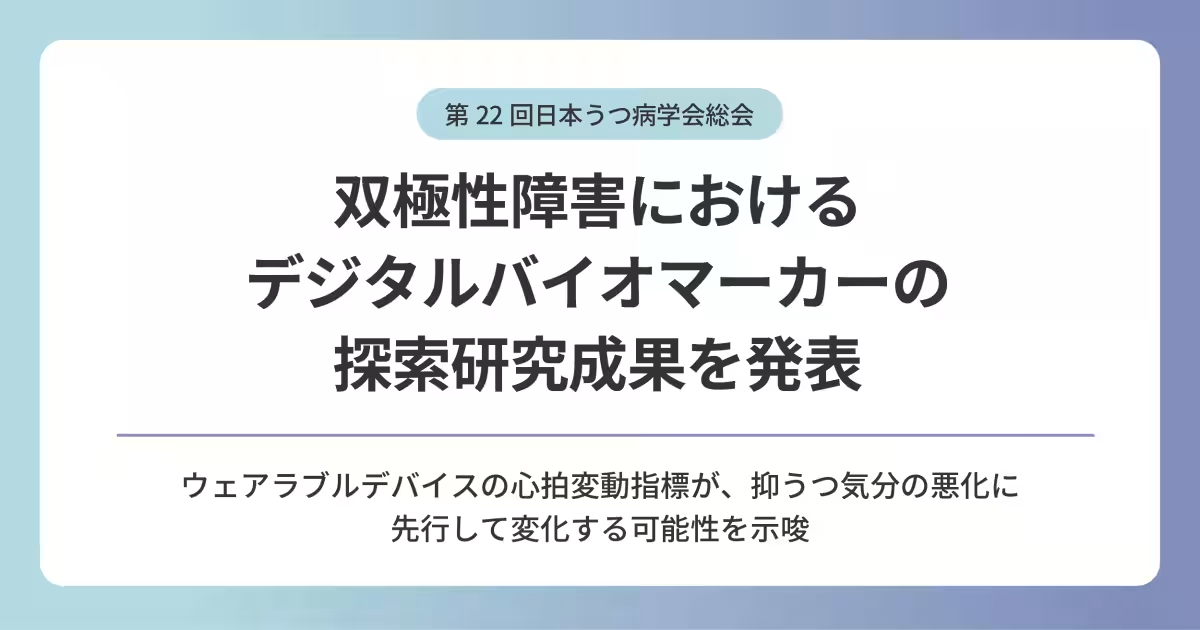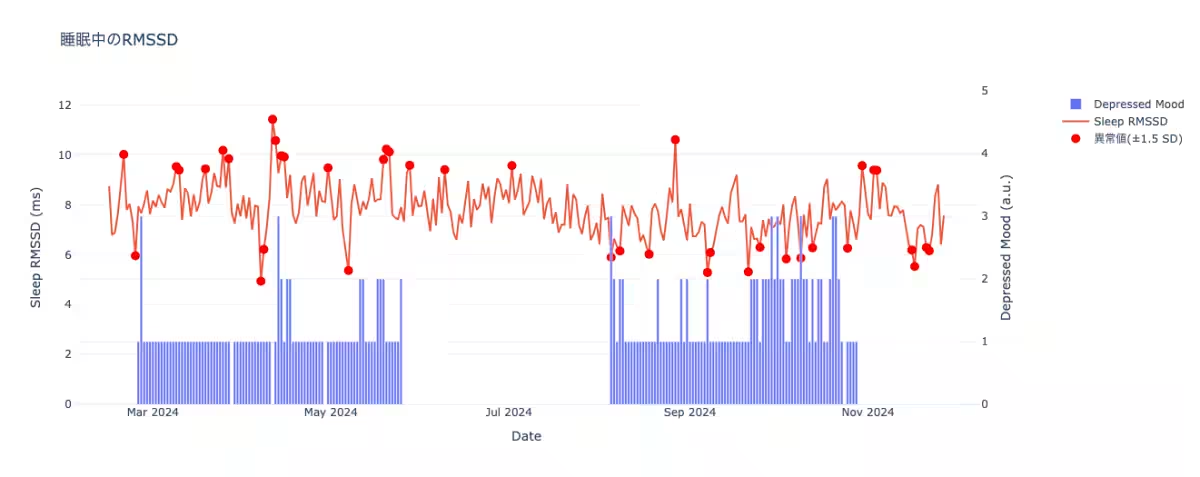

Tech Doctor Presents Innovative Findings on Digital Biomarkers for Bipolar Disorder at the 22nd Japanese Society of Mood Disorders Conference
Tech Doctor's Breakthrough in Understanding Bipolar Disorder
Recently, Tech Doctor, a prominent health technology company based in Tokyo, presented innovative findings during the 22nd Japanese Society of Mood Disorders Conference held on July 11-12, 2025. The focus of their research centered on the exploration of digital biomarkers in patients diagnosed with bipolar disorder through the use of wearable devices.
Overview of the Research
Bipolar disorder, characterized by alternating episodes of depression and mania, poses significant challenges in terms of symptom management. Often, monitoring relies heavily on subjective self-reports from patients, thus underscoring the necessity for objective and real-time monitoring techniques. This is where Tech Doctor's research comes into play.
Utilizing the Google Fitbit Charge 6, the research team gathered various biometric data, including heart rate variability (HRV), sleep patterns, and activity levels. This data was then correlated with subjective mood assessments collected via the eMoods app, which allows users to record their mood state on a scale from 1 (none) to 4 (severe) for four different emotional states: 1) depressed mood (DM), 2) elevated mood, 3) irritability, and 4) anxiety.
Study Summary
The key findings of the research presented can be outlined as follows:
- - Title: Exploring Digital Biomarkers Using Wearable Devices in Bipolar Disorder Patients
- - Conducting Institution: Tech Doctor
- - Study Duration: February to November 2024
- - Participant: A male patient in his 40s diagnosed with bipolar disorder
- - Objective Data: Collected from Google Fitbit Charge 6 measuring heart rate, sleep, and physical activity
- - Subjective Assessment: Daily self-evaluation using eMoods for various mood states
Key Findings of the Research
The most notable outcome of this investigation has been the observed trends between subjective mood scores and the objective data obtained from wearable devices. Specifically, the study identified a significant pattern where a decrease in the RMSSD (Root Mean Square of Successive Differences) – a HRV metric – occurred prior to an increase in the DM score.
During the observation period, there were 14 days where the RMSSD values were markedly low compared to the subject's average. Furthermore, on 12 of those days, the subject reported an increase in the DM score within the subsequent week. It is essential to highlight that throughout the study duration, the participant was unaware of the HRV results while documenting their mood states.
Social Significance and Future Directions
Even though the current study involved a single participant, it highlights a probable correlation between daily HRV data and subjective mood evaluations. Tech Doctor plans to expand their research by examining additional cases to explore relationships between HRV and other symptomatic indicators beyond just depressed mood.
The company remains committed to advancing the field of mental health by developing digital biomarkers aimed at enhancing objective monitoring and disease prediction. Their mission is driven by the vision of transforming health insights from daily sensing data into actionable healthcare solutions.
About Tech Doctor
Established on June 21, 2019, Tech Doctor is located in Kyobashi, Tokyo, and is spearheaded by CEO Kazushi Minato, alongside Chief Medical Officer Keisuke Izumi. The company's dedication includes collaborating with healthcare professionals and research institutions to implement AI-driven medical practices. Their flagship digital biomarker development platform, known as SelfBase, aims to redefine personalized healthcare by utilizing continuous biometric data collection methods.
In summary, Tech Doctor's innovative research is laying the groundwork for enhancing mood disorder management through the use of digital biomarkers and objective monitoring. As they continue their focus on bipolar disorder and other mental health challenges, they are poised to contribute significantly to the future of digital healthcare solutions.


Topics Health)










【About Using Articles】
You can freely use the title and article content by linking to the page where the article is posted.
※ Images cannot be used.
【About Links】
Links are free to use.